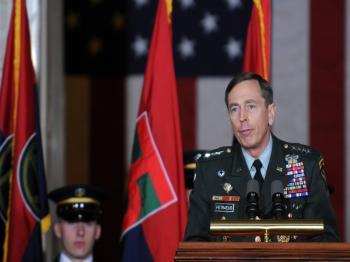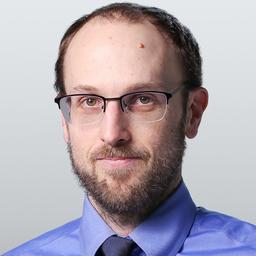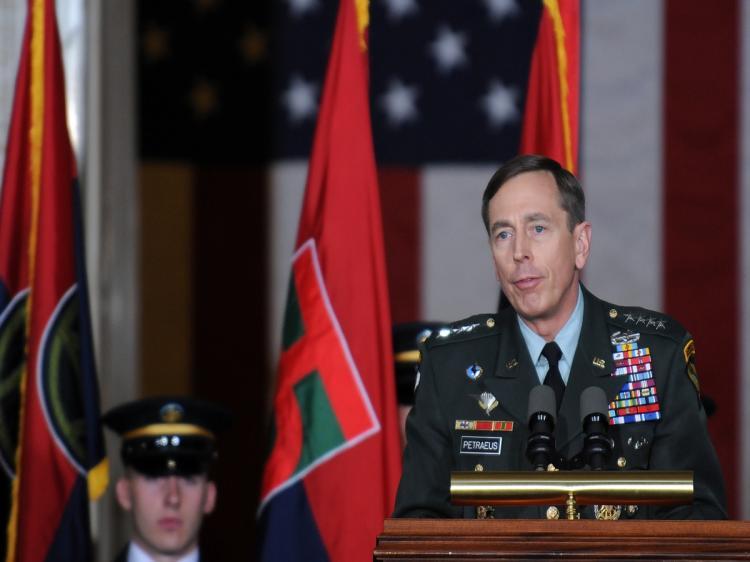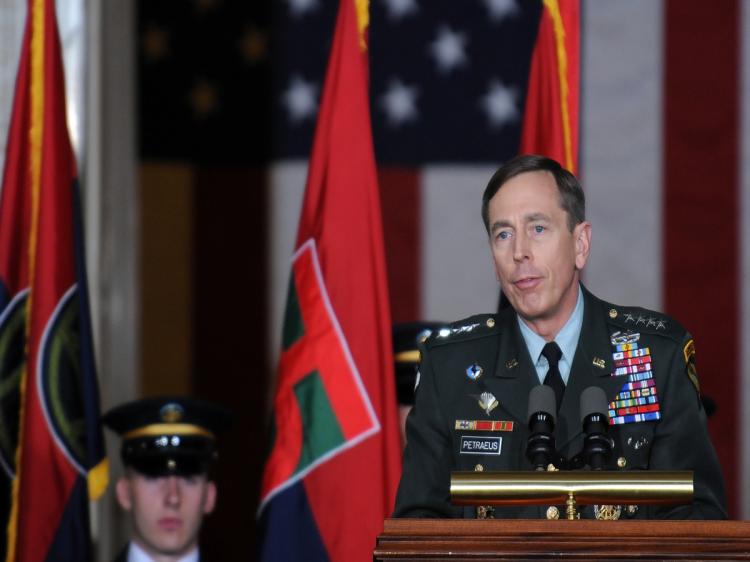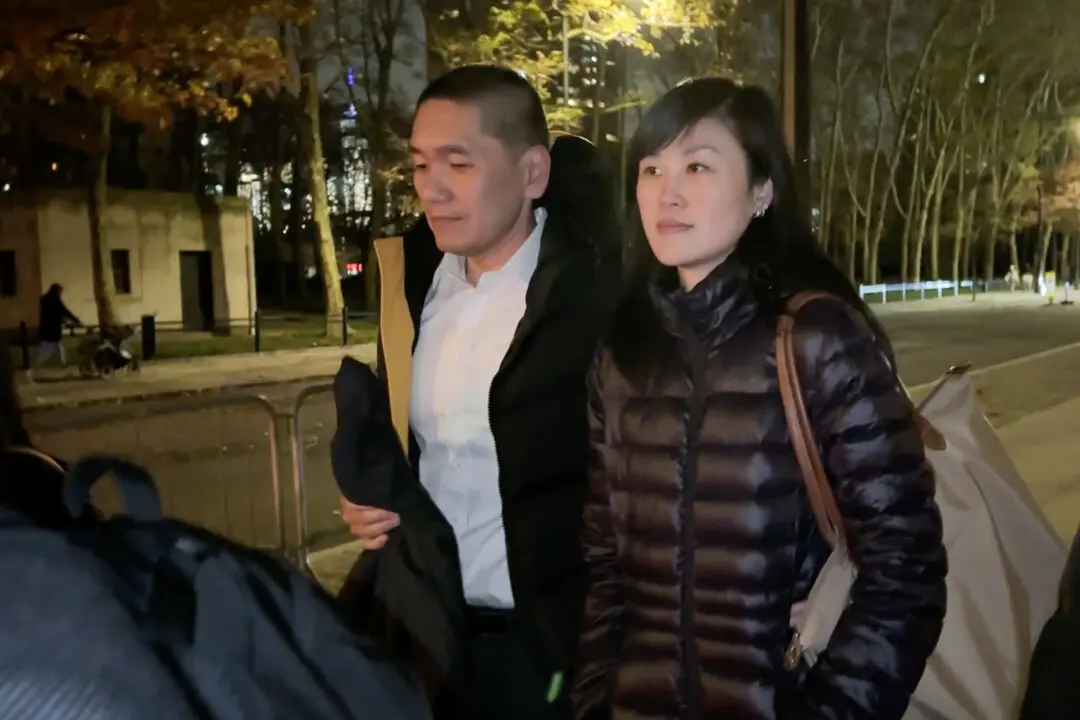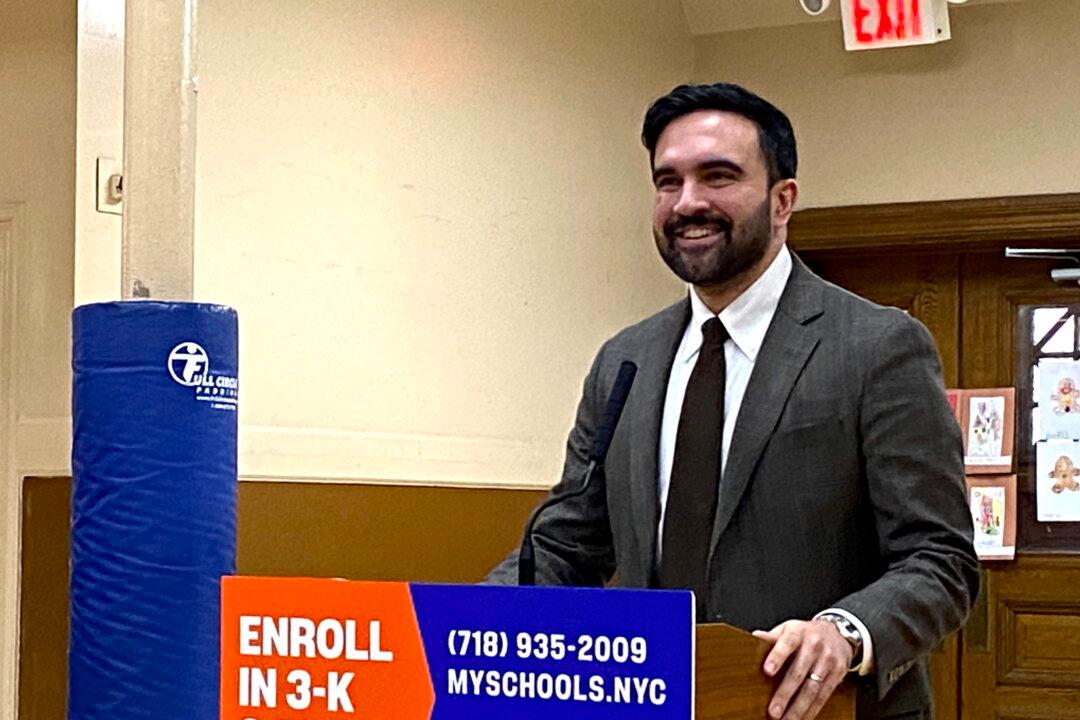WASHINGTON—Nazi concentration camp survivors and their liberators gathered in the Rotunda of the U.S. Capitol Building Thursday in a ceremony to mark the 65th anniversary of the liberation of World War II concentration camps.
General David H. Petraeus spoke at the ceremony, which was part of Remembrance Days hosted by the U.S. Holocaust Memorial Museum to commemorate those who lost their lives in the Holocaust.
Petraeus noted that the gathering was actually a celebration. He told attendees “to remember the great atrocity of which mankind is capable and to remember the great resilience and humanity of which mankind is capable as well.”
One hundred and twenty World War II veterans who liberated Nazi concentration camps and the survivors they liberated were in attendance. They were joined by the family of Stephen Tyrone Johns—a U.S. Holocaust Memorial Museum special police officer who was shot down June 10, 2009, protecting museum visitors and staff.
Sara Bloomfield, director of the Holocaust Memorial Museum, spoke of the great task liberators undertook. She commended the Army for initiating the process of repatriating 11 million displaced persons freed from the camps after the war. She added that it was the Army that began the de-Nazification of German society and the process of bringing those responsible to justice.
“Today as we pay tribute to these veterans we recognize that American soldiers played many roles,” she said.
“They were fighters and liberators. They were caregivers and resettlers. They were rabbis and reverends. They were prosecutors and jurists. They were educators and governors. And they played one more role of enormous and lasting significance: they were witnesses.”
Bloomfield explained that as the first eye witnesses of the horrific Nazi camps, the liberating soldiers were given an enormous task.
“Having seen firsthand the true potential of human depravity, having learned that the unthinkable was indeed thinkable, they now had the burden of sharing this knowledge with the world,” she said.
Bloomfield stated that this is a responsibility these soldiers share with camp survivors, adding that liberators and survivors, “have forged an unshakeable bond.”
Michael Oren, Israel ambassador to the United States also noted the strength of the bond between liberators and survivors. “The relationship between liberator and liberated can be eternal, evolving and strengthening over time.” He compared this bond to the one shared between the United States and Israel—strong and steadfast with a succession of U.S. presidents reaffirming the strength of the relationship.
Oren added that “much work remains before the hatred of all peoples is defeated and generations of conflict resolved.”
General Petraeus responded with a call for vigilance, stating that it is “the duty of subsequent generations to read the storms before they break upon us.”
“We recall that the fire that consumed so much of civilization in the last century was ignited initially by small but monumental crimes. It was after all but a blink of an eye from Kristallnacht to the death camps,” said Petraeus referring to the first serious crackdown on Jews in Nazi Germany and Austria in November 1938.
“We can never avert our gaze,” he said.
General David H. Petraeus spoke at the ceremony, which was part of Remembrance Days hosted by the U.S. Holocaust Memorial Museum to commemorate those who lost their lives in the Holocaust.
Petraeus noted that the gathering was actually a celebration. He told attendees “to remember the great atrocity of which mankind is capable and to remember the great resilience and humanity of which mankind is capable as well.”
One hundred and twenty World War II veterans who liberated Nazi concentration camps and the survivors they liberated were in attendance. They were joined by the family of Stephen Tyrone Johns—a U.S. Holocaust Memorial Museum special police officer who was shot down June 10, 2009, protecting museum visitors and staff.
Sara Bloomfield, director of the Holocaust Memorial Museum, spoke of the great task liberators undertook. She commended the Army for initiating the process of repatriating 11 million displaced persons freed from the camps after the war. She added that it was the Army that began the de-Nazification of German society and the process of bringing those responsible to justice.
“Today as we pay tribute to these veterans we recognize that American soldiers played many roles,” she said.
“They were fighters and liberators. They were caregivers and resettlers. They were rabbis and reverends. They were prosecutors and jurists. They were educators and governors. And they played one more role of enormous and lasting significance: they were witnesses.”
Bloomfield explained that as the first eye witnesses of the horrific Nazi camps, the liberating soldiers were given an enormous task.
“Having seen firsthand the true potential of human depravity, having learned that the unthinkable was indeed thinkable, they now had the burden of sharing this knowledge with the world,” she said.
Bloomfield stated that this is a responsibility these soldiers share with camp survivors, adding that liberators and survivors, “have forged an unshakeable bond.”
Michael Oren, Israel ambassador to the United States also noted the strength of the bond between liberators and survivors. “The relationship between liberator and liberated can be eternal, evolving and strengthening over time.” He compared this bond to the one shared between the United States and Israel—strong and steadfast with a succession of U.S. presidents reaffirming the strength of the relationship.
Oren added that “much work remains before the hatred of all peoples is defeated and generations of conflict resolved.”
General Petraeus responded with a call for vigilance, stating that it is “the duty of subsequent generations to read the storms before they break upon us.”
“We recall that the fire that consumed so much of civilization in the last century was ignited initially by small but monumental crimes. It was after all but a blink of an eye from Kristallnacht to the death camps,” said Petraeus referring to the first serious crackdown on Jews in Nazi Germany and Austria in November 1938.
“We can never avert our gaze,” he said.
